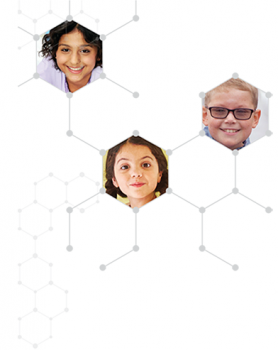Global Clinical Trial Aims to Improve Therapies for Pediatric Acute Leukemia
10.10.2019 | Seattle Children's Press Team
 Seattle Children’s will embark on a groundbreaking clinical trial that will potentially transform treatment methods for children with relapsed acute pediatric leukemia.
Seattle Children’s will embark on a groundbreaking clinical trial that will potentially transform treatment methods for children with relapsed acute pediatric leukemia.
In collaboration with The Leukemia & Lymphoma Society (LLS), Dr. Todd Cooper, an oncologist and director of the Seattle Children’s High-Risk Leukemia Program, is part of a team leading the effort to launch a global precision medicine master clinical trial called the LLS Pediatric Acute Leukemia (PedAL) Initiative. The goal of the trial, which is part of The LLS Children’s Initiative: Cures and Care for Children, is to test multiple targeted therapies simultaneously at up to 200 clinical sites, including Seattle Children’s, worldwide.
Cooper, the Clinical Trial Lead, will oversee the master screening trial where children with newly diagnosed and relapsed acute leukemia can choose to have their clinical and biologic information included in an international database. This database will serve many purposes, including helping to determine an individual child’s eligibility for a number of targeted clinical trials. The data will also be used to uncover new targets for therapy and as a rich source for groundbreaking discoveries.
On the Pulse sat down with Cooper to discuss the specifics of the trial and how it will possibly revolutionize the types of cancer treatments available for children.
Why is a trial like this needed for children with relapsed acute leukemia?
 We now understand that pediatric acute leukemias, including acute myeloid leukemia (AML) and other high-risk leukemias, are different in children than they are in adults.
We now understand that pediatric acute leukemias, including acute myeloid leukemia (AML) and other high-risk leukemias, are different in children than they are in adults.
In today’s market, the treatments that are available and those being developed are largely for adult leukemia. This has caused challenges in new drug development for children whose leukemia is more often driven by different biologic processes. New approaches to diagnostics, discovery, and new therapies are desperately needed.
Also, as we learn more about childhood leukemia biology, we’ve discovered that different children have different drivers of their leukemia and each may respond differently to chemotherapies. These different biologic drivers may be perfect for targeted therapies. These subsets are often rare, and that’s why we need a different and unified mechanism by which to study these populations and find new therapies. With the help of LLS, for the first time we have the momentum to do this.
What makes this trial different than others?
With this new approach, every child with acute leukemia is going to have what’s called next generation sequencing, a special type of genetic testing. The results of those tests are all going be shared and entered into a large database.
This is going to be incredibly important because for the first time we are going to have a single, unified database with the clinical and biologic characteristics of all children in the United States and Europe with acute leukemia. When a child relapses, these results will be used to identify patterns and drivers of the cancer so patients can be matched with the most promising targeted therapies for their disease through precision medicine.
The global collaborative will also allow us to standardize and unite efforts in pediatric leukemia drug development, creating a more efficient means to provide targeted drugs.
What is the timeline for the trial?
We are in the process of developing the groundwork for the trial, and our hope it to enroll our first patient in the summer of 2020.
What does this mean for families?
Through precision medicine, these children who have types of acute leukemia that essentially haven’t been curable in the past will now have hope of better treatment options.
As the director of Seattle Children’s High-Risk Leukemia Program, this is the most transformative project that I’ve ever been a part of in my career. I hope that this will not only provide a platform to discover even more new therapies but be a shining example of the importance of putting kids first.